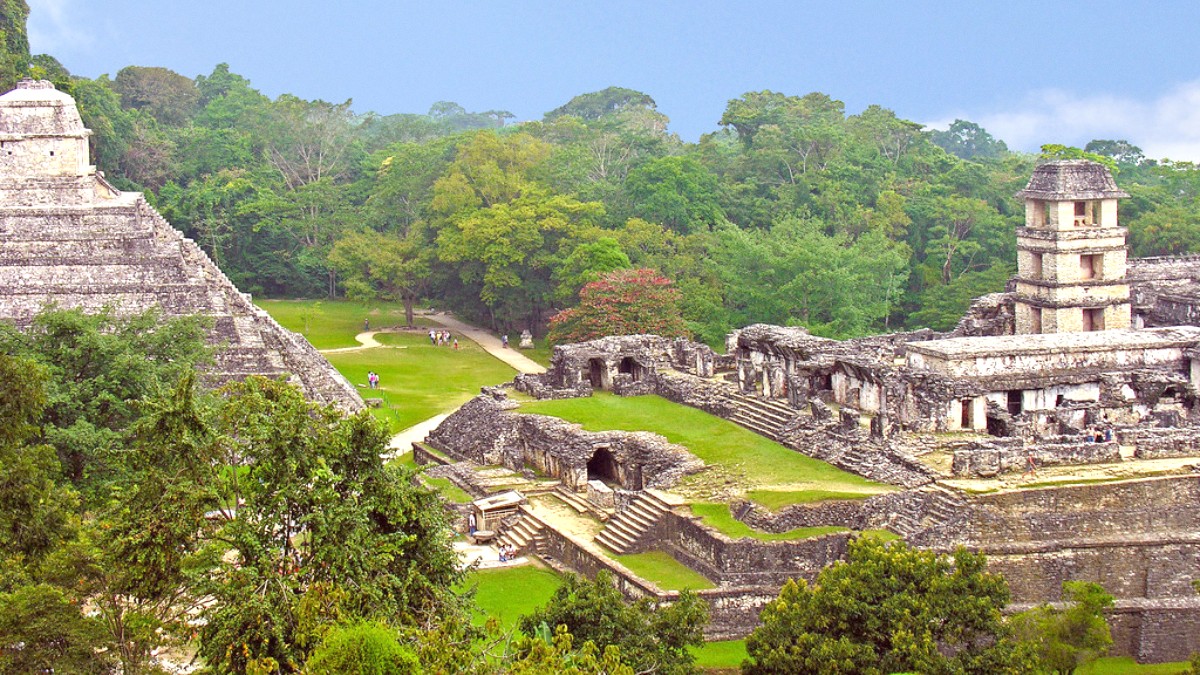
Tabasco And Chiapas, Mexico
The Palenque archaeological site lies within Palenque National Park, protecting tropical rainforest and biodiversity. Entrance fees support conservation efforts.
Recycling infrastructure is limited. Minimize personal waste by carrying reusable items. Dispose of trash in designated bins and avoid littering.
Responsible water use is important. Take shorter showers, report leaks at accommodations, and participate in hotel towel/linen reuse programs.
Palenque’s setting in the Lacandon Jungle highlights the value of environmental responsibility. Your choices influence this precious ecosystem.
Your entrance fees to the Palenque archaeological site contribute to its maintenance and conservation efforts. Reduce your personal waste by refusing single-use plastics.
Look for eco-lodges and tour operators that demonstrate clear commitments to sustainability. Inquire about their environmental policies before booking.
Learn basic Spanish phrases like "Hola" and "Gracias." This shows respect. Always ask "Puedo tomar una foto?" before taking pictures of people.
Do not photograph children without explicit parental permission. Be mindful of people's privacy. Do not use flash photography inside tombs or fragile structures.
Carry a reusable water bottle and fill it from purified sources. This reduces plastic waste and protects the environment.
Your actions directly influence the people and traditions of Palenque. When you purchase a hand-woven textile or a locally carved piece, you help sustain centuries-old skills.
Making an effort to use basic Spanish phrases ("Hola," "Gracias," "Por favor") shows respect and facilitates smoother interactions. Embrace the local pace of life; patience and politeness are highly valued.
It is generally acceptable to take photos in public spaces and of landscapes. However, exercise caution and respect for individual privacy.
Responsible travel makes certain your tourism contributes positively to the local economy and avoids harmful practices. Your spending choices directly affect the livelihoods of people in Palenque.
Seek and support tours and businesses that are truly community-based, like Roberto Barrios waterfalls. Consider ethical tour operators such as G Adventures.
When buying souvenirs, prioritize fair trade shops or artisan cooperatives. These establishments ensure artisans receive fair prices. Explore options like The Rainforest Site (GreaterGood) store.
Eat at local restaurants, "comedores," and street food vendors. Stay at independently owned hotels. Buy souvenirs from local shops and hire licensed local guides.
Your spending choices directly affect the livelihoods of people in Palenque. Make choices that benefit the local community and preserve this unique destination.
Be aware of tours or attractions that seem to exploit wildlife (e.g., offering photo opportunities with animals that appear drugged or confined). Choose reputable ecotourism operators who prioritize animal welfare.
Patronize local restaurants, "comedores," and street food vendors instead of international chain restaurants. This action helps keep your money circulating within the local economy.
Look for and support tours and businesses that are truly community-based. For example, the Roberto Barrios waterfalls are managed by a local community, and your entrance fee directly supports them.
While the Palenque ruins are historical rather than active religious sites, approach them with respect for their ancient spiritual importance.
Mexico has become more progressive in larger cities regarding LGBTQ+ rights. However, rural areas and smaller towns like Palenque tend to be more socially conservative.
Choose reputable ecotourism operators who prioritize animal welfare.
Research local NGOs or community projects for donations to ensure sustainable benefits.